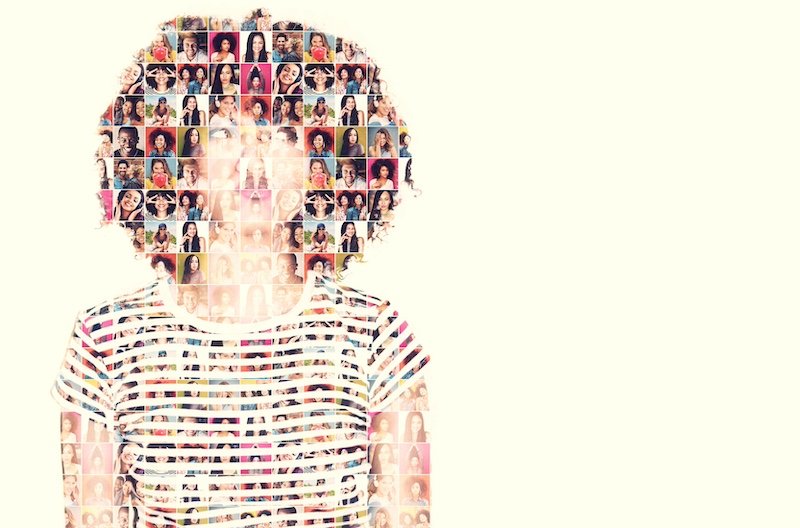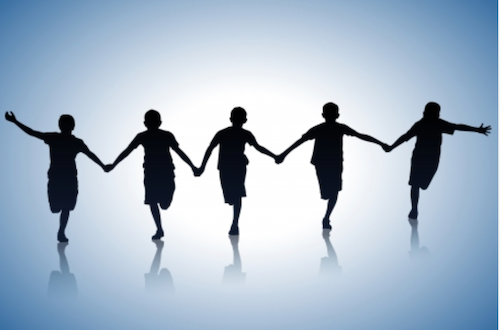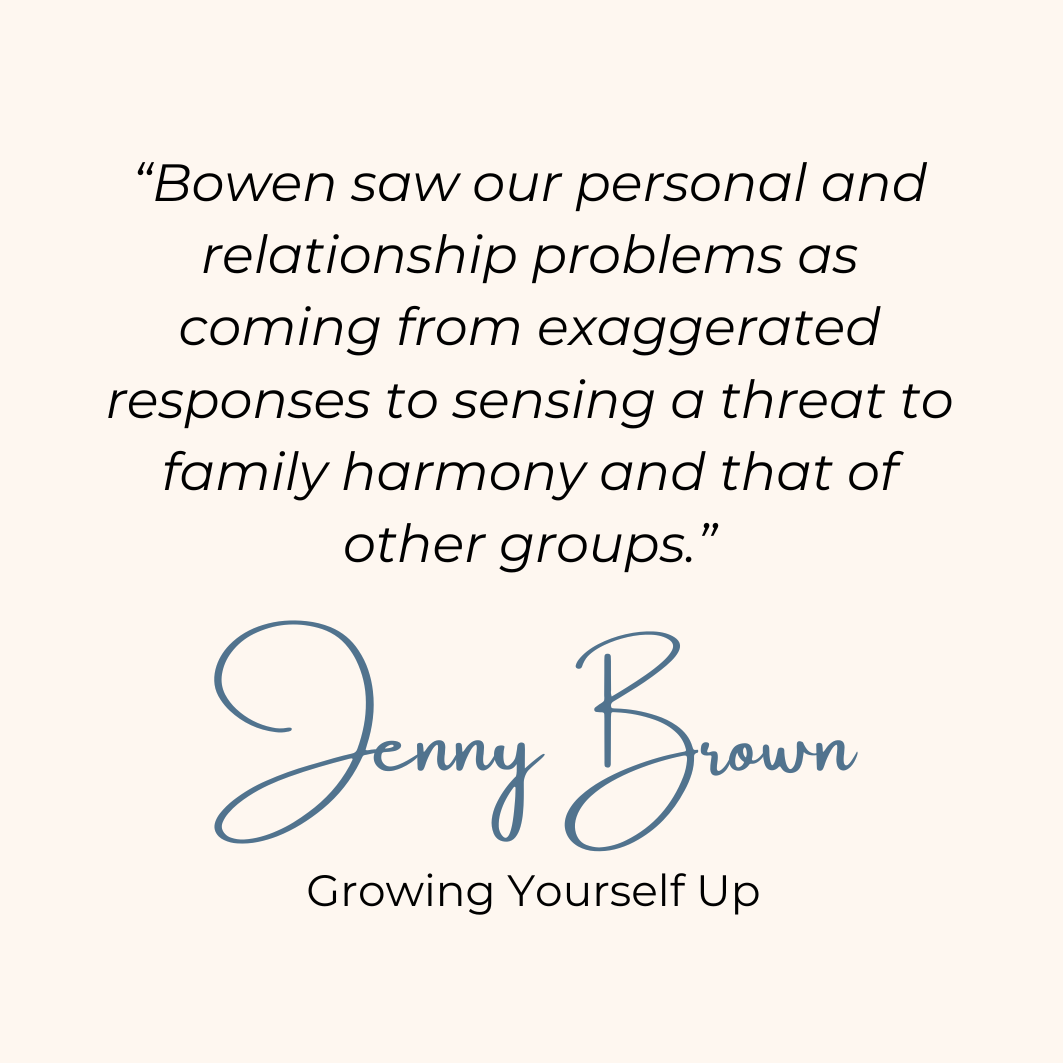
Part 1 of the series: Meet the Team Brain. Click here to read part 2.
Whenever we live or work together in groups, a team brain is formed.
From our families through to our work teams and the social clubs we belong to, every group has a distinct team brain, and its influence is pervasive. It shapes our individual well-being and our mental health.
A mature, highly differentiated team brain offers us a sense of belonging, of welcome, of acceptance. We feel that we can be ourselves, have fun and be playful; we thrive and enjoy collaborating towards a common goal; even under pressure we can remain calm, creative and thoughtful.
But belonging to a team brain with a low level of differentiation, holds us back. It’s negative influence can shatter our self-esteem and knock our confidence; suppress our ability to think for ourselves; and leave us experiencing intolerable anxiety without really understanding why.
All too often, the impact of the team brain is implicit and outside of our conscious awareness, but this leaves us vulnerable: one of the most significant influences on our well-being is completely outside of our control.
When we start to recognise and understand the group forces at work, then we can start to choose our own way and shape our own well-being. To belong to the team but not be taken over or directed by it. To think clearly for ourselves despite pressure to agree with the majority, To find inner calm even when surrounded by other’s panicking anxiety and stress.

The team brain describes how the groups we belong to influence our individual functioning.
From our most formative group: the family we grew up in, through to our current work, sports clubs or religious communities. Dr Kissell has coined the term the team brain® to describe the influence of the group, because when we come together, for a purpose, over a period of time, then the diverse thinking of the many starts to become aligned and attuned, so that the many start to think, feel, react and connect as if of one mind.
!["People frequently are willing to be individuals only to the extent that the [Team Brain] approves and permits is." Michael Kerr and Murray Bowen, Family Evaluation](https://drkathrynkissell.com/wp-content/uploads/2024/10/image-62-e1732704178400.png)
The team brain is formed by the force of Togetherness, this is one of two automatic and instinctive forces that underpin our relational lives: Individuality and Togetherness. Individuality is the desire we all have to be unique and distinct from the group. Togetherness is the equal and opposite force that captures our desire to belong, to be accepted, to be part of something bigger than ourselves. The Togetherness force is the glue that brings people together, holds them together and over time forms the unique personality and culture of the team brain.
The intensity of Togetherness within a team brain expresses itself on a continuum. A football team with a low level of Togetherness would look more like a collection of individuals than coherent squad. Everyone would be out for themselves. In contrast, when togetherness shifts towards its higher extremity, fusion, then we have a clump of players with no distinguishing features. There is no goalie, forwards or defence, just 11 people holding hands running up and down the pitch.
Murray Bowen whose research articulated the emotional oneness of fusion initially described this messy fudge as an “undifferentiated family ego mass”, I like how this captures just how entwined and embedded we can be with each other.

The influence of the team brain can be so subtle that it is only when we leave the group system that we begin to recognise its impact. It is only when we move out of the family home that we notice that we can suddenly think more clearly about our beliefs, or when we change jobs we realise that our anxiety levels have dropped dramatically.
As humans we have never existed in isolation, working away for our individual survival, we have always been members of the tribe, thriving as a collective. Evidence from our earliest ancestors around 2 million years ago, shows us already sharing resources, resting and eating together. Such social bonds helped ensure our collective success.
We are perhaps more familiar with thinking about social connections as one to one interactions, but the complexity of our interrelatedness goes far beyond this and the concept of the team brain captures how our individual autonomy is subsumed for the greater purpose of the group.
From one perspective the alignment of our thoughts and actions appears counterintuitive. Surely we need the collective intelligence of the group, a diversity of thinking and a variety of strengths and interests to successfully tackle the complex challenges we face. But when we observe the wider animal kingdom, we realise that such collective mental activity is commonplace: from the hive mind of a colony of ants, to the swarm intelligence of birds taking flight. And such collective consciousness is especially valuable at time of threat.
Under survival threat time is of the essence. The instinctive and intuitive herd reaction of zebra on a savannah plain is far more effective than an individualistic approach. Without a team brain each zebra would need to spot the stalking lion for themselves, weigh up the threat and personally think through their escape route. In contrast, the herd’s team brain only requires one zebra to detect the threat for the whole group to feel the fear and take flight together. The team brain creates a collective fight, flight, freeze reaction. We temporarily lay down our individuality, our differences of opinions, preferences and personalities to pull together to achieve survival.

While we experience less intense survival threats than we did 2 million years ago, we still see the power of the team brain in action within communities helping each other at times of natural disaster or when a disparate work team suddenly pulls together when facing stiff competition from a new rival. There is a clear threat and we all pull together to survive.

The challenge we now face is that the complexity of our lives means that threats are everywhere.
I might spot a lion, but you have seen a cheetah, and there is a volcano erupting in the distance which is distracting everyone. Not only do we face multiple threats concurrently, but the solutions are not clear cut. Our collective fight, flight and freeze reactions do not solve the challenges we face. Running away, getting angry or playing dead are not going to help tackle the balancing act of parenting with full time jobs, or keeping company products aligned with technological advances.
In today's world we need our team brain to have a higher tolerance for stress and change so that we can contain the togetherness push for fusion and keep thinking as distinct individuals, able to draw on the wisdom of the group to solve complex and adaptive problems. Unlike animals, who have limited control over their herd instinct, we can significantly influence our team brain. By understanding how the team brain develops, functions and thrives we can strengthen our relational resilience and expand our team’s capacity to keep creative, curious and calm under pressure.

Read on to discover how our team brain mirrors our individual brain in the way that it develops, functions and thrives How the Team Brain mirrors our Individual Brain